Angels & Demons Read online
Page 8
Kohler made no reaction. He simply stared.
“Matter,” Vittoria repeated. “Blossoming out of nothing. An incredible display of subatomic fireworks. A miniature universe springing to life. He proved not only that matter can be created from nothing, but that the Big Bang and Genesis can be explained simply by accepting the presence of an enormous source of energy.”
“You mean God?” Kohler demanded.
“God, Buddha, The Force, Yahweh, the singularity, the unicity point—call it whatever you like—the result is the same. Science and religion support the same truth—pure energy is the father of creation.”
When Kohler finally spoke, his voice was somber. “Vittoria, you have me at a loss. It sounds like you’re telling me your father created matter… out of nothing?”
“Yes.” Vittoria motioned to the canisters. “And there is the proof. In those canisters are specimens of the matter he created.”
Kohler coughed and moved toward the canisters like a wary animal circling something he instinctively sensed was wrong. “I’ve obviously missed something,” he said. “How do you expect anyone to believe these canisters contain particles of matter your father actually created? They could be particles from anywhere at all.”
“Actually,” Vittoria said, sounding confident, “they couldn’t. These particles are unique. They are a type of matter that does not exist anywhere on earth… hence they had to be created.”
Kohler’s expression darkened. “Vittoria, what do you mean a certain type of matter? There is only one type of matter, and it—” Kohler stopped short.
Vittoria’s expression was triumphant. “You’ve lectured on it yourself, director. The universe contains two kinds of matter. Scientific fact.” Vittoria turned to Langdon. “Mr. Langdon, what does the Bible say about the Creation? What did God create?”
Langdon felt awkward, not sure what this had to do with anything. “Um, God created… light and dark, heaven and hell—”
“Exactly,” Vittoria said. “He created everything in opposites. Symmetry. Perfect balance.” She turned back to Kohler. “Director, science claims the same thing as religion, that the Big Bang created everything in the universe with an opposite.”
“Including matter itself,” Kohler whispered, as if to himself.
Vittoria nodded. “And when my father ran his experiment, sure enough, two kinds of matter appeared.”
Langdon wondered what this meant. Leonardo Vetra created matter’s opposite?
Kohler looked angry. “The substance you’re referring to only exists elsewhere in the universe. Certainly not on earth. And possibly not even in our galaxy!”
“Exactly,” Vittoria replied, “which is proof that the particles in these canisters had to be created.”
Kohler’s face hardened. “Vittoria, surely you can’t be saying those canisters contain actual specimens?”
“I am.” She gazed proudly at the canisters. “Director, you are looking at the world’s first specimens of antimatter.”
20
Phase two, the Hassassin thought, striding into the darkened tunnel.
The torch in his hand was overkill. He knew that. But it was for effect. Effect was everything. Fear, he had learned, was his ally. Fear cripples faster than any implement of war.
There was no mirror in the passage to admire his disguise, but he could sense from the shadow of his billowing robe that he was perfect. Blending in was part of the plan… part of the depravity of the plot. In his wildest dreams he had never imagined playing this part.
Two weeks ago, he would have considered the task awaiting him at the far end of this tunnel impossible. A suicide mission. Walking naked into a lion’s lair. But Janus had changed the definition of impossible.
The secrets Janus had shared with the Hassassin in the last two weeks had been numerous… this very tunnel being one of them. Ancient, and yet still perfectly passable.
As he drew closer to his enemy, the Hassassin wondered if what awaited him inside would be as easy as Janus had promised. Janus had assured him someone on the inside would make the necessary arrangements. Someone on the inside. Incredible. The more he considered it, the more he realized it was child’s play.
Wahad… tintain… thalatha… arbaa, he said to himself in Arabic as he neared the end. One… two… three… four…
21
“I sense you’ve heard of antimatter, Mr. Langdon?” Vittoria was studying him, her dark skin in stark contrast to the white lab.
Langdon looked up. He felt suddenly dumb. “Yes. Well… sort of.”
A faint smile crossed her lips. “You watch Star Trek.”
Langdon flushed. “Well, my students enjoy…” He frowned. “Isn’t antimatter what fuels the U.S.S. Enterprise?”
She nodded. “Good science fiction has its roots in good science.”
“So antimatter is real?”
“A fact of nature. Everything has an opposite. Protons have electrons. Up-quarks have down-quarks. There is a cosmic symmetry at the subatomic level. Antimatter is yin to matter’s yang. It balances the physical equation.”
Langdon thought of Galileo’s belief of duality.
“Scientists have known since 1918,” Vittoria said, “that two kinds of matter were created in the Big Bang. One matter is the kind we see here on earth, making up rocks, trees, people. The other is its inverse—identical to matter in all respects except that the charges of its particles are reversed.”
Kohler spoke as though emerging from a fog. His voice sounded suddenly precarious. “But there are enormous technological barriers to actually storing antimatter. What about neutralization?”
“My father built a reverse polarity vacuum to pull the antimatter positrons out of the accelerator before they could decay.”
Kohler scowled. “But a vacuum would pull out the matter also. There would be no way to separate the particles.”
“He applied a magnetic field. Matter arced right, and antimatter arced left. They are polar opposites.”
At that instant, Kohler’s wall of doubt seemed to crack. He looked up at Vittoria in clear astonishment and then without warning was overcome by a fit of coughing. “Incred… ible…” he said, wiping his mouth, “and yet…” It seemed his logic was still resisting. “Yet even if the vacuum worked, these canisters are made of matter. Antimatter cannot be stored inside canisters made out of matter. The antimatter would instantly react with—”
“The specimen is not touching the canister,” Vittoria said, apparently expecting the question. “The antimatter is suspended. The canisters are called ‘antimatter traps’ because they literally trap the antimatter in the center of the canister, suspending it at a safe distance from the sides and bottom.”
“Suspended? But… how?”
“Between two intersecting magnetic fields. Here, have a look.”
Vittoria walked across the room and retrieved a large electronic apparatus. The contraption reminded Langdon of some sort of cartoon ray gun—a wide cannonlike barrel with a sighting scope on top and a tangle of electronics dangling below. Vittoria aligned the scope with one of the canisters, peered into the eyepiece, and calibrated some knobs. Then she stepped away, offering Kohler a look.
Kohler looked nonplussed. “You collected visible amounts?”
“Five thousand nanograms,” Vittoria said. “A liquid plasma containing millions of positrons.”
“Millions? But a few particles is all anyone has ever detected… anywhere.”
“Xenon,” Vittoria said flatly. “He accelerated the particle beam through a jet of xenon, stripping away the electrons. He insisted on keeping the exact procedure a secret, but it involved simultaneously injecting raw electrons into the accelerator.”
Langdon felt lost, wondering if their conversation was still in English.
Kohler paused, the lines in his brow deepening. Suddenly he drew a short breath. He slumped like he’d been hit with a bullet. “Technically that would leave…”
Vitt
oria nodded. “Yes. Lots of it.”
Kohler returned his gaze to the canister before him. With a look of uncertainty, he hoisted himself in his chair and placed his eye to the viewer, peering inside. He stared a long time without saying anything. When he finally sat down, his forehead was covered with sweat. The lines on his face had disappeared. His voice was a whisper. “My God… you really did it.”
Vittoria nodded. “My father did it.”
“I… I don’t know what to say.”
Vittoria turned to Langdon. “Would you like a look?” She motioned to the viewing device.
Uncertain what to expect, Langdon moved forward. From two feet away, the canister appeared empty. Whatever was inside was infinitesimal. Langdon placed his eye to the viewer. It took a moment for the image before him to come into focus.
Then he saw it.
The object was not on the bottom of the container as he expected, but rather it was floating in the center—suspended in midair—a shimmering globule of mercurylike liquid. Hovering as if by magic, the liquid tumbled in space. Metallic wavelets rippled across the droplet’s surface. The suspended fluid reminded Langdon of a video he had once seen of a water droplet in zero G. Although he knew the globule was microscopic, he could see every changing gorge and undulation as the ball of plasma rolled slowly in suspension.
“It’s… floating,” he said.
“It had better be,” Vittoria replied. “Antimatter is highly unstable. Energetically speaking, antimatter is the mirror image of matter, so the two instantly cancel each other out if they come in contact. Keeping antimatter isolated from matter is a challenge, of course, because everything on earth is made of matter. The samples have to be stored without ever touching anything at all—even air.”
Langdon was amazed. Talk about working in a vacuum.
“These antimatter traps?” Kohler interrupted, looking amazed as he ran a pallid finger around one’s base. “They are your father’s design?”
“Actually,” she said, “they are mine.”
Kohler looked up.
Vittoria’s voice was unassuming. “My father produced the first particles of antimatter but was stymied by how to store them. I suggested these. Airtight nanocomposite shells with opposing electromagnets at each end.”
“It seems your father’s genius has rubbed off.”
“Not really. I borrowed the idea from nature. Portuguese man-o’-wars trap fish between their tentacles using nematocystic charges. Same principle here. Each canister has two electromagnets, one at each end. Their opposing magnetic fields intersect in the center of the canister and hold the antimatter there, suspended in midvacuum.”
Langdon looked again at the canister. Antimatter floating in a vacuum, not touching anything at all. Kohler was right. It was genius.
“Where’s the power source for the magnets?” Kohler asked.
Vittoria pointed. “In the pillar beneath the trap. The canisters are screwed into a docking port that continuously recharges them so the magnets never fail.”
“And if the field fails?”
“The obvious. The antimatter falls out of suspension, hits the bottom of the trap, and we see an annihilation.”
Langdon’s ears pricked up. “Annihilation?” He didn’t like the sound of it.
Vittoria looked unconcerned. “Yes. If antimatter and matter make contact, both are destroyed instantly. Physicists call the process ‘annihilation.’ ”
Langdon nodded. “Oh.”
“It is nature’s simplest reaction. A particle of matter and a particle of antimatter combine to release two new particles—called photons. A photon is effectively a tiny puff of light.”
Langdon had read about photons—light particles—the purest form of energy. He decided to refrain from asking about Captain Kirk’s use of photon torpedoes against the Klingons. “So if the antimatter falls, we see a tiny puff of light?”
Vittoria shrugged. “Depends what you call tiny. Here, let me demonstrate.” She reached for the canister and started to unscrew it from its charging podium.
Without warning, Kohler let out a cry of terror and lunged forward, knocking her hands away. “Vittoria! Are you insane?”
22
Kohler, incredibly, was standing for a moment, teetering on two withered legs. His face was white with fear. “Vittoria! You can’t remove that trap!”
Langdon watched, bewildered by the director’s sudden panic.
“Five hundred nanograms!” Kohler said. “If you break the magnetic field—”
“Director,” Vittoria assured, “it’s perfectly safe. Every trap has a failsafe—a back-up battery in case it is removed from its recharger. The specimen remains suspended even if I remove the canister.”
Kohler looked uncertain. Then, hesitantly, he settled back into his chair.
“The batteries activate automatically,” Vittoria said, “when the trap is moved from the recharger. They work for twenty-four hours. Like a reserve tank of gas.” She turned to Langdon, as if sensing his discomfort. “Antimatter has some astonishing characteristics, Mr. Langdon, which make it quite dangerous. A ten milligram sample—the volume of a grain of sand—is hypothesized to hold as much energy as about two hundred metric tons of conventional rocket fuel.”
Langdon’s head was spinning again.
“It is the energy source of tomorrow. A thousand times more powerful than nuclear energy. One hundred percent efficient. No byproducts. No radiation. No pollution. A few grams could power a major city for a week.”
Grams? Langdon stepped uneasily back from the podium.
“Don’t worry,” Vittoria said. “These samples are minuscule fractions of a gram—millionths. Relatively harmless.” She reached for the canister again and twisted it from its docking platform.
Kohler twitched but did not interfere. As the trap came free, there was a sharp beep, and a small LED display activated near the base of the trap. The red digits blinked, counting down from twenty-four hours.
24:00:00…
23:59:59…
23:59:58…
Langdon studied the descending counter and decided it looked unsettlingly like a time bomb.
“The battery,” Vittoria explained, “will run for the full twenty-four hours before dying. It can be recharged by placing the trap back on the podium. It’s designed as a safety measure, but it’s also convenient for transport.”
“Transport?” Kohler looked thunderstruck. “You take this stuff out of the lab?”
“Of course not,” Vittoria said. “But the mobility allows us to study it.”
Vittoria led Langdon and Kohler to the far end of the room. She pulled a curtain aside to reveal a window, beyond which was a large room. The walls, floors, and ceiling were entirely plated in steel. The room reminded Langdon of the holding tank of an oil freighter he had once taken to Papua New Guinea to study Hanta body graffiti.
“It’s an annihilation tank,” Vittoria declared.
Kohler looked up. “You actually observe annihilations?”
“My father was fascinated with the physics of the Big Bang—large amounts of energy from minuscule kernels of matter.” Vittoria pulled open a steel drawer beneath the window. She placed the trap inside the drawer and closed it. Then she pulled a lever beside the drawer. A moment later, the trap appeared on the other side of the glass, rolling smoothly in a wide arc across the metal floor until it came to a stop near the center of the room.
Vittoria gave a tight smile. “You’re about to witness your first antimatter-matter annihilation. A few millionths of a gram. A relatively minuscule specimen.”
Langdon looked out at the antimatter trap sitting alone on the floor of the enormous tank. Kohler also turned toward the window, looking uncertain.
“Normally,” Vittoria explained, “we’d have to wait the full twenty-four hours until the batteries died, but this chamber contains magnets beneath the floor that can override the trap, pulling the antimatter out of suspension. And when the matter
and antimatter touch…”
“Annihilation,” Kohler whispered.
“One more thing,” Vittoria said. “Antimatter releases pure energy. A one hundred percent conversion of mass to photons. So don’t look directly at the sample. Shield your eyes.”
Langdon was wary, but he now sensed Vittoria was being overly dramatic. Don’t look directly at the canister? The device was more than thirty yards away, behind an ultrathick wall of tinted Plexiglas. Moreover, the speck in the canister was invisible, microscopic. Shield my eyes? Langdon thought. How much energy could that speck possibly–

 Angels & Demons
Angels & Demons Origin
Origin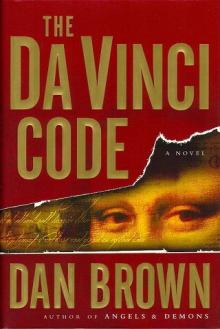 The Da Vinci Code
The Da Vinci Code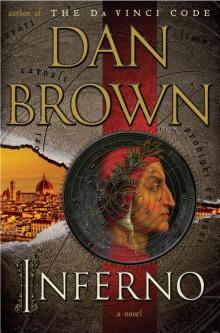 Inferno
Inferno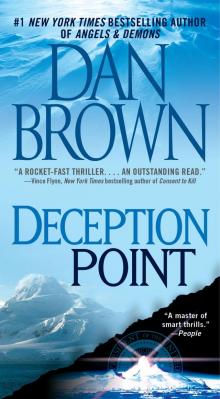 Deception Point
Deception Point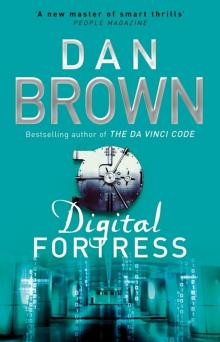 Digital Fortress
Digital Fortress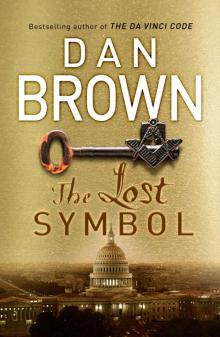 The Lost Symbol
The Lost Symbol Origin: (Robert Langdon Book 5)
Origin: (Robert Langdon Book 5) Angles & Demons
Angles & Demons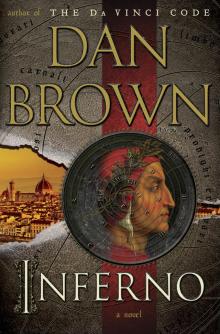 Inferno: A Novel
Inferno: A Novel Angels & Demons rl-1
Angels & Demons rl-1 The Great Expectations School
The Great Expectations School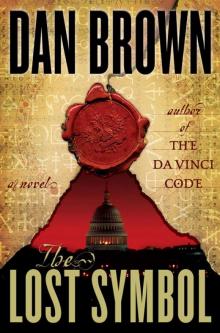 The Lost Symbol rl-3
The Lost Symbol rl-3 Angels and Demons
Angels and Demons Inferno: Special Illustrated Edition: Featuring Robert Langdon
Inferno: Special Illustrated Edition: Featuring Robert Langdon